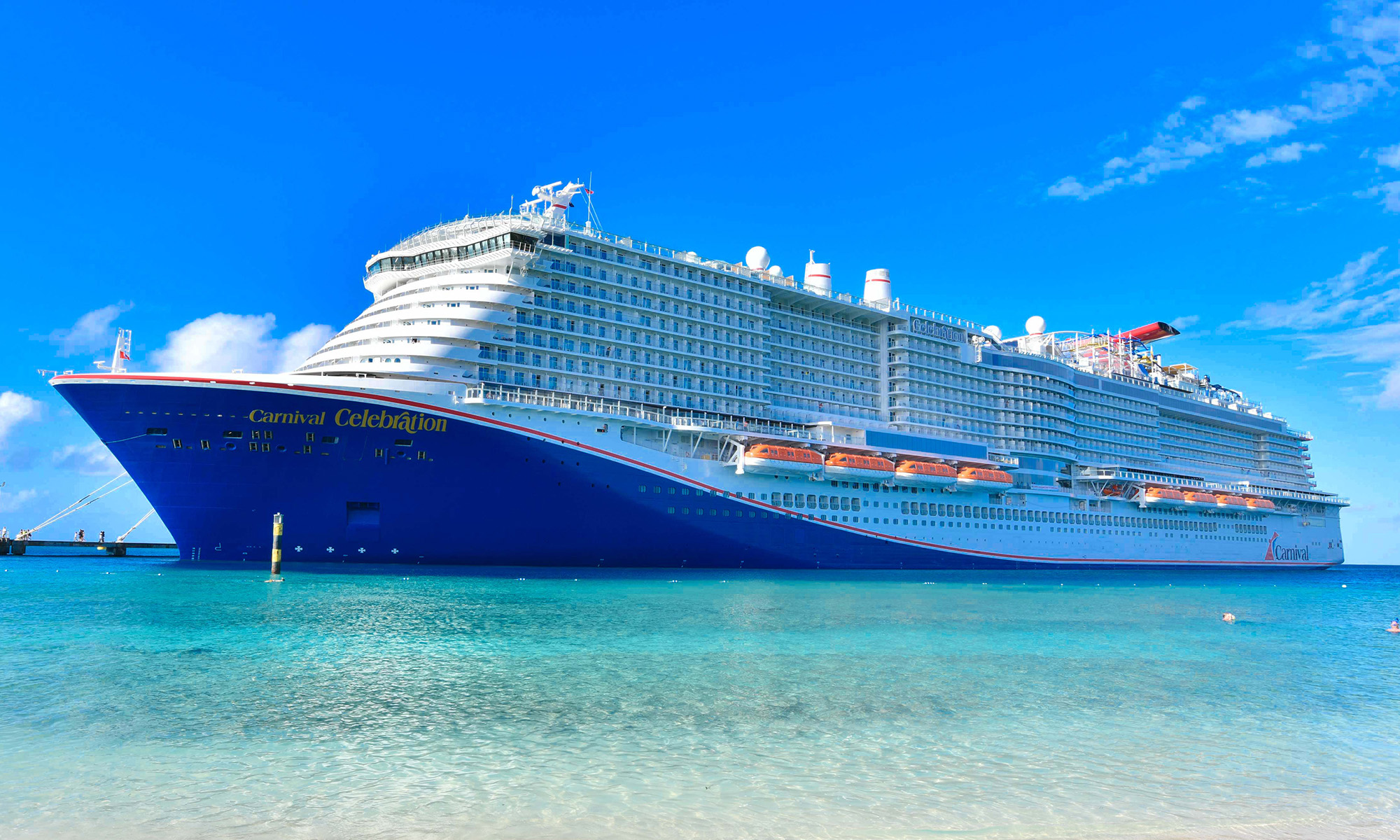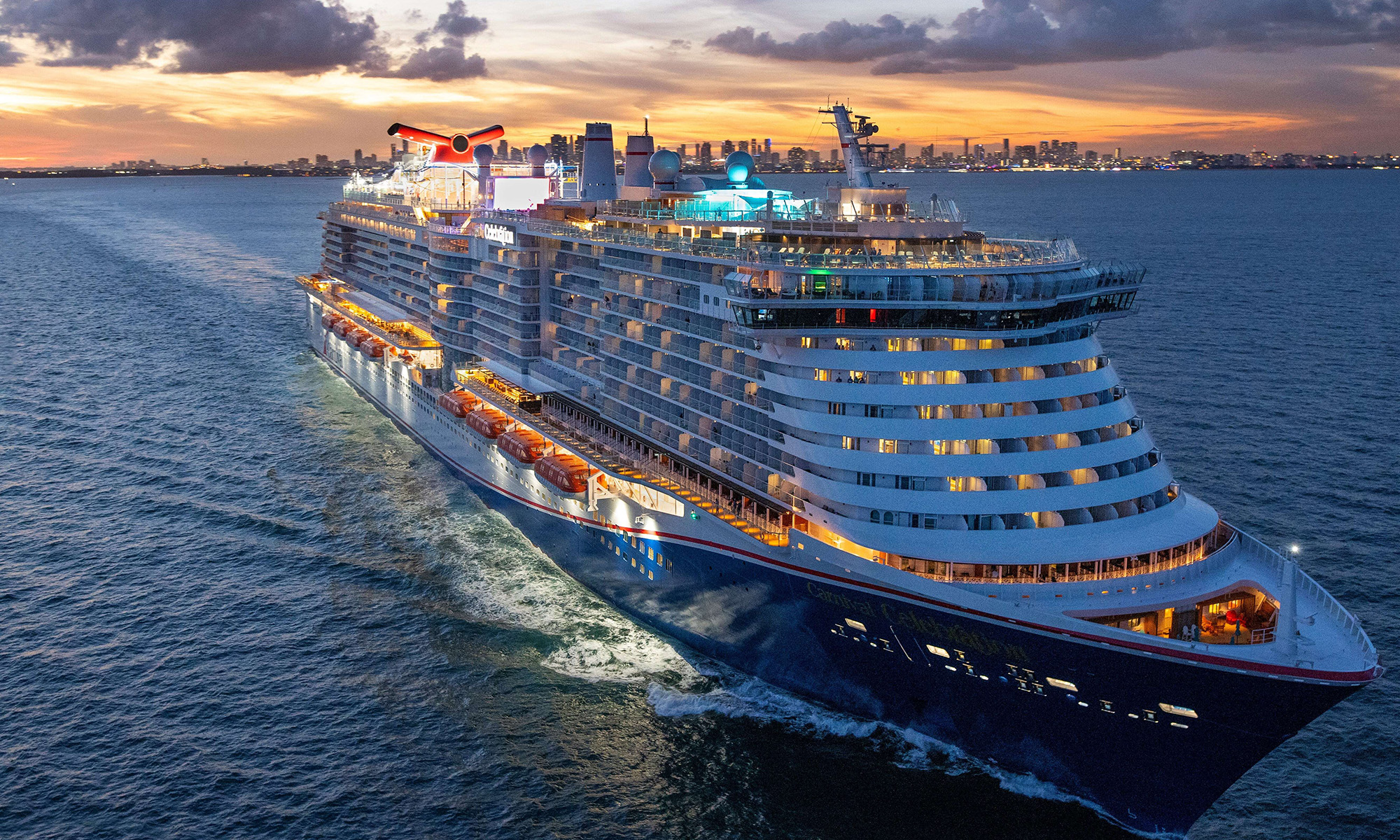Shares of Carnival (CCL 1.77%) (CUK 1.95%) have more than doubled since bottoming out in 2022, but the stock has been volatile this year. It currently sits at around $23, down from its 52-week high of $28.72.
While strong demand for cruises has fueled higher revenue for Carnival, Wall Street is focused on risks that could derail its momentum. Specifically, declining consumer confidence in recent months could lead to weaker demand for cruise vacations. There's also the risk of new taxes on cruise lines that could hurt Carnival's profitability.
Despite these headwinds, analysts remain positive about Carnival's prospects. The consensus price target of $27.73 implies 20% upside in the near term from current share prices.

Image source: Carnival.
The bullish view is supported by the stock's low earnings multiple of 12.4 based on 2025 earnings estimates. This looks attractive and could support significant upside for investors if Carnival continues to report solid financial results like it did in the first quarter.
Carnival has never seen demand like this before
Carnival reported record quarterly revenue of $5.8 billion in Q1, while operating income nearly doubled year over year to $543 million. Management noted incredible demand across its cruise brands, which include Holland America and Princess Cruises.
Carnival is the leading cruise operator in the world, with more than $25 billion in trailing-12-month revenue. Demand is exceeding the limited availability of rooms, which is leading to higher pricing. This is fueling the surge in Carnival's profits. In fact, Carnival is currently seeing historically high prices for 2025, yet people are still booking trips into 2026.
The secondary effect of this strong demand is that it is helping Carnival pay down its debt and reduce interest expense. Lower debt saved the company $94 million in interest expense last quarter, and that helped improve the company's profitability.
On a non-GAAP (generally accepted accounting principles) basis, analysts expect Carnival's earnings per share to improve from $1.42 in fiscal 2024 to $1.86 in fiscal 2025. The company still has $27 billion in debt, but that provides a catalyst for more earnings growth as management focuses on reducing this financial burden.
Weighing the risks
Carnival's business looks stronger than ever, which builds the case for buying the stock after the recent dip. But what about the risks?

NYSE: CCL
Key Data Points
Consumer confidence was down in April for the fifth consecutive month, although it showed signs of rebounding in May. Lower consumer confidence could impact demand for travel and limit upside for the stock.
But that's not all. Investors also must weigh the possibility of new taxes on the cruise industry. This comes after Commerce Secretary Howard Lutnick commented earlier this year that the Trump administration might seek to crack down on cruise companies headquartered in the U.S. that benefit from tax exemptions. New taxes on cruise companies would create higher costs and weigh on earnings.
Still, these headwinds are also why investors can buy the stock at such a low P/E multiple. With the stock trading at just 12 times this year's earnings estimate, it may not take much good news to send the stock higher. Another strong quarterly earnings report could send the stock hurtling to new highs in 2025.
What is the upside?
Long term, Carnival's upcoming launch of Celebration Key, an exclusive destination that management expects to drive strong demand through 2030, could create enough upside in revenue and profits to offset the risks.
If Carnival's earnings reach analyst estimates of $2.46 in 2027 and the stock is trading at a fair P/E of 15, that would put the share price at nearly $37, implying upside of 60% over the next few years.
The upside seems to outweigh the downside at this point, but this assumes that the economy continues to grow. The cruise industry can be cyclical with the economy. Investors who buy Carnival stock should closely monitor the company's quarterly financial reports. If it starts to show weakening revenue and consumer demand, investors would need to think about selling and moving on to better opportunities.
Given the need to closely monitor the business, Carnival stock may not be a good fit for everyone's investment goals.






